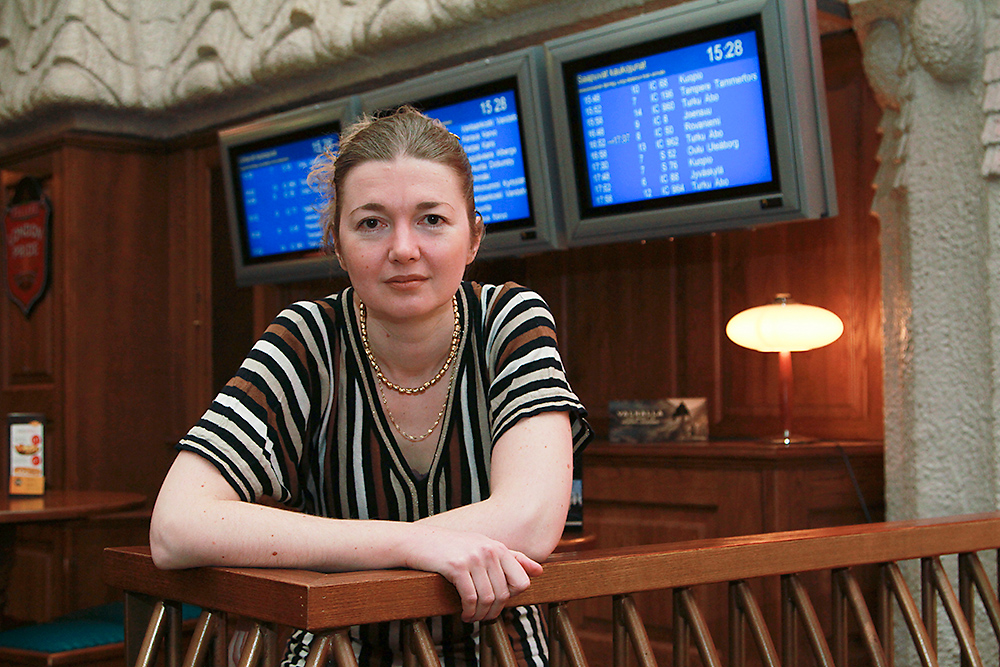
Polina Kopylova has a business but so far no office. She often works at Helsinki cafés. One of her favourite places is the Railway Station’s Pulman Bar because of its location and atmosphere.
Photo Päivi Arvonen
By Päivi Arvonen
Polina Kopylova moved from Russia to Finland in 2002. She has found good employment in Finland and reminds other immigrants that immigration is an opportunity to learn new things and to expand one’s skills.
Polina Kopylova qualified as a TV journalist in St. Petersburg in 1997 and specialized in cultural journalism in Russia. She moved to Finland in 2002 and settled in Helsinki with her Finnish husband.
“I had no expectations to find work in which I could use Russian,” Kopylova says.
The employment office first directed her to a Finnish-language course and next sent her to train at a Russian-speaking organization, which she left in November 2012. She started her own business in the spring of 2014 providing interpretation, translation and journalistic services. She also writes reports and articles in Finnish and has received excellent feedback for her Finnish language skills.
“I started to speak Finnish only three years after I moved to Finland. It takes time to learn a new language and culture.”
Kopylova thinks that moving to a new culture and country is like a second childhood.
“An immigrant is first like a child, not able to understand the language or the culture. One has to learn a new culture gradually, to make observations and to process the observations. All this takes several years.”
It is depressing to break the career path
As many other immigrants, Kopylova has had to re-build her career and skills in her new home country.
“Immigrants are depressed about having to break their career paths when they move. However, immigration is also an opportunity to learn new things and to expand one’s skills.”
Kopylova thinks that it is normal for immigrants to accept any work at first. Work helps them to better understand the language and the culture. Work allows them to make contacts that can help them later to find more appealing work.
“Immigration can also be an opportunity to realize your dreams. A brief break from work can be good for you, as you can re-think during your time off what you really want to do.”
Information and events for immigrants
Kopylova has found that there is a great deal of information available online, but it is often difficult to find the information one needs. She also wishes that the City of Helsinki webpages would be easier to use.
“For example, there could be a summary of the events in the city. There could be many more events, especially in the suburbs and not only in Kallio.”
Kopylova lives in Kontula. She thinks that the local shopping centre would be a magnificent venue for events.
“Why are the extensive knowledge and skills provided by diversity not utilized in the city?” she wonders.
Kontula is better than its reputation
Kopylova enjoys Kontula. She lives there in single-family home. She especially appreciates Kontula’s greenness, services, play grounds, libraries and good connections thanks to the metro.
“Kontula’s bad reputation is exaggerated. The area is quite peaceful. Kontula allows people to combine idyllic lifestyles in single-family homes with urban city life.”
According to Kopylova, the best aspects of Helsinki are the versatile cityscape, many different architectural styles, the variety of ethnic shops and low-threshold events open for everybody.
Translated by Johanna Lemola


